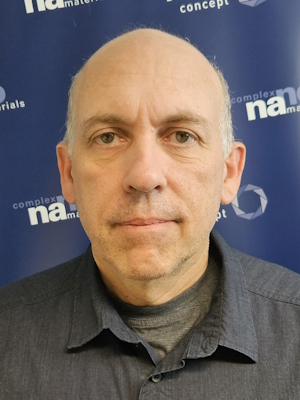
former Dresden senior fellow
| Stay period: | June 25, 2023 - Aug. 8, 2023 |
| Group: | computational materials science and theoretical nanophysics |
Prof. Dr. Ernesto Medina has a strong experience in quantum transport at the molecular and nanoscale. He received his Ph.D. thesis in Physics in 1991 at the Massachusetts Institute of Technology. Professor Ernesto served as an Associate Professor in the Department of Physics at the Faculty of Science, Central University of Venezuela. In 2004, he achieved the position of Researcher Titular at the Venezuelan Institute of Scientific Research, supported by 10 reference letters from esteemed experts in the field. He also was professor at the School of Physics and Nanotechnology in Ecuador and later, in 2021, joined as a professor at the University San Francisco de Quito (USFQ), also in Ecuador. Furthermore, he has been invited as a visiting professor at the University of Lorraine, the University Henri Poincare Nancy I, and the Arizona State University. Dr. Medina has previously been recognized as a Member of the Latin American Academy of Physics. Furthermore, he has received the prestigious POLAR Prize, the highest honor in the field of science in Venezuela. He was also awarded the José María Vargas Order by the Central University of Venezuela and the National Science Prize for Best Article in 2003. Dr. Medina is an Associate Member of the International Center for Theoretical Physics at the South American Institute for Fundamental Research and was a Fulbright Scholar in 2015. In 2018, he was recognized as a Fellow of the American Physical Society. His research is centered on modeling the behavior of complex physical and chemical systems in the description of quantum effects in the emerging behavior of systems of nanoscopic dimensions. His areas of interest include electron transport in molecule-electrode interfaces, electron transfer, Nanophotonics, Nanomagnetism, and quantum relaxation theory. During his stay, Prof. Medina be working on the problem of spin-selective transport (CISS effect) in helical molecules.

former Dresden senior fellow
| Stay period: | June 25, 2023 - Aug. 8, 2023 |
| Group: | computational materials science and theoretical nanophysics |
Prof. Dr. Ernesto Medina has a strong experience in quantum transport at the molecular and nanoscale. He received his Ph.D. thesis in Physics in 1991 at the Massachusetts Institute of Technology. Professor Ernesto served as an Associate Professor in the Department of Physics at the Faculty of Science, Central University of Venezuela. In 2004, he achieved the position of Researcher Titular at the Venezuelan Institute of Scientific Research, supported by 10 reference letters from esteemed experts in the field. He also was professor at the School of Physics and Nanotechnology in Ecuador and later, in 2021, joined as a professor at the University San Francisco de Quito (USFQ), also in Ecuador. Furthermore, he has been invited as a visiting professor at the University of Lorraine, the University Henri Poincare Nancy I, and the Arizona State University. Dr. Medina has previously been recognized as a Member of the Latin American Academy of Physics. Furthermore, he has received the prestigious POLAR Prize, the highest honor in the field of science in Venezuela. He was also awarded the José María Vargas Order by the Central University of Venezuela and the National Science Prize for Best Article in 2003. Dr. Medina is an Associate Member of the International Center for Theoretical Physics at the South American Institute for Fundamental Research and was a Fulbright Scholar in 2015. In 2018, he was recognized as a Fellow of the American Physical Society. His research is centered on modeling the behavior of complex physical and chemical systems in the description of quantum effects in the emerging behavior of systems of nanoscopic dimensions. His areas of interest include electron transport in molecule-electrode interfaces, electron transfer, Nanophotonics, Nanomagnetism, and quantum relaxation theory. During his stay, Prof. Medina be working on the problem of spin-selective transport (CISS effect) in helical molecules.